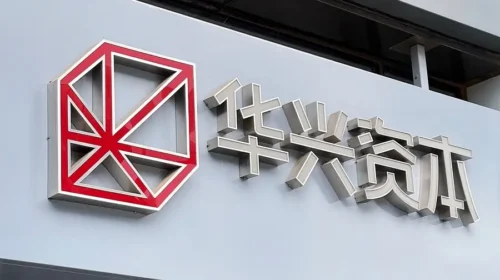CICC tarnished by due dilligence probe

The investment banking giant is under investigation over its role in a failed public offering by chip company S2C, which was found to have inflated its pre-IPO earnings
Key Takeaways:
- S2C was heavily fined and banned from seeking another IPO for five years in the first such penalty since China rolled out a stock registration system
- With IPO candidates under closer scrutiny, CICC’s revenue from underwriting and sponsor services plunged nearly 65% in the first half of the year
By Ken Lo
China’s securities watchdog has been flexing his muscles since the start of the year, stepping up an anti-fraud drive under its assertive new chairman, Wu Qing.
Numerous listed companies have come under critical scrutiny, but the names of major state-owned enterprises or powerful securities firms have been notably absent from the list of suspects, fueling talk of a selective crackdown. That is, until now.
The securities regulator recently began an official probe into one of China’s top investment banks over its actions in the run-up to an abortive IPO bid by chip designer S2C.
China International Capital Corporation Ltd. (3908.HK) announced on Oct. 11 that it was being investigated under security laws on suspicion of failing to exercise due diligence as the IPO sponsor. In its brief statement, the investment bank said it would cooperate with the probe and meet all necessary disclosure requirements.
The China Securities Regulatory Commission launched the inquiry into CICC in September after an earlier review found that the chipmaker had submitted false information in its IPO bid, eventually resulting in hefty fines and other penalties.
S2C, a company affiliated with Hong Kong-listed SMIT (2239.HK), filed to list on Shanghai’s Nasdaq-like Star market and won regulatory approval in August 2021. But later the Chinese securities watchdog conducted an on-site inspection of the IPO candidate, finding anomalies suggesting earnings data could have been falsified. S2C withdrew its IPO application in July the following year.
Not above the law
China has long regarded semiconductors as a strategic industry critical to the country’s economic development, ploughing in vast sums to fast track globally competitive products. The government set up a dedicated investment fund in 2014 with 98.7 billion yuan ($13.85 billion) in the pot, doubling the money five years later to 204.2 billion yuan. Eager to ride on the bandwagon, S2C was found to have inflated its revenue and profits for 2020. Regulators may be looking to see if CICC cut the chip designer any slack for being part of a mission to make China a global force in semiconductors.
The previous chairman of the securities regulator, Yi Huiman, opened an investigation into S2C but no punishment was handed down until his successor, Wu Qing, took over in February 2024 and had his team analyze a decade of data.
In June this year, the Shanghai Stock Exchange imposed fines on S2C and banned the company from seeking another IPO for five years. It was the first such punishment since China rolled out a new registration system to tighten oversight of stock issuance. The company was also slapped with the longest listing ban on record, beating a three-year exclusion imposed on Shanghai Jingyu Environmental Engineering that had been the sternest prohibition to date.
Executives who presided over the false disclosure were also punished, including the then
S2C chairman Huang Xueliang, who was barred from serving in senior corporate positions for one to three years. Huang was also banned from submitting listing applications for any other companies for a year.
The investigation found that S2C had inflated its profits through fictitious sales, early revenue recognition and understatement of expenses. Using these methods, operating revenue was judged to have been inflated by 15.67 million yuan in 2020 and profit was boosted by 12.47 million yuan, more than doubling the genuine bottom-line figure.
Pressure to play by the rules
News of the regulatory action hit CICC’s share price, erasing some sharp September gains and leaving the stock with a year-to-date loss. The crackdown is expected to weigh on the investment bank’s underwriting and sponsorship business but should not seriously threaten its leading position in the IPO market.
CICC is the unquestionable king of IPO underwriting in Hong Kong, according to nine-month data from financial information provider Wind. In the first three quarters of 2024 the investment bank underwrote HK$20.4 billion ($2.63 billion) of IPO business, far more than the HK$14.3 billion for second-placed Bank of America Securities and HK$2.23 billion for CITIC Securities Hong Kong.
However, business has slipped since regulatory crusader Wu pledged to tighten surveillance of the IPO process and weed out any unqualified companies. CICC’s total revenue fell 20% year on year to just 14.89 billion yuan in the first half of 2024, and net profit fell 37.4% to 2.23 billion yuan. Revenue from equity underwriting and sponsorship fell 64.8% to 468 million yuan, pushing investment banking revenue down 36.6% to 1.34 billion yuan.
CICC’s forward price-to-earnings (P/E) ratio stands at 6.08 times, below the 7.79 times for CITIC Securities (6030.HK), whose asset management business has performed steadily while CICC’s underwriting income has fallen sharply. As a result, CICC’s share price looks more affordable.
To subscribe to Bamboo Works weekly free newsletter, click here






